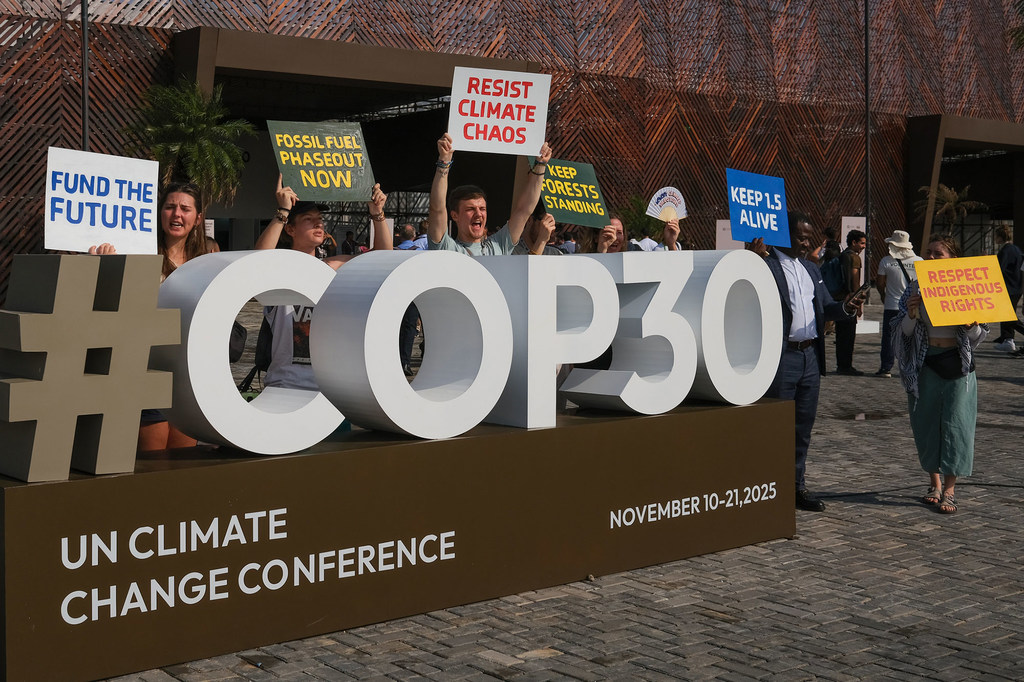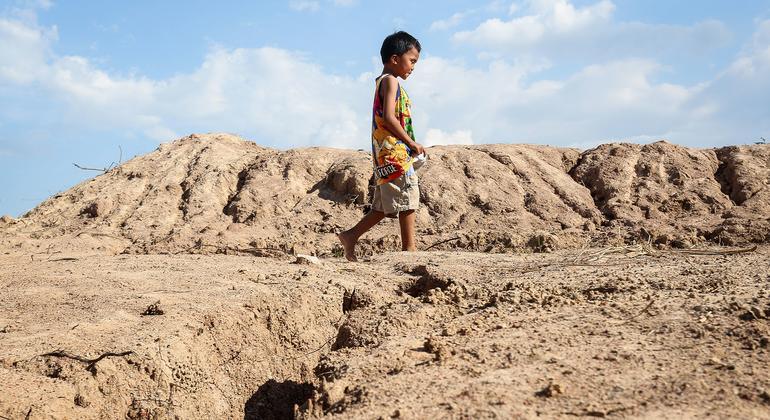As climate negotiations continue in the Amazon city of Belém, Brazil, governments, UN agencies and partners have adopted the Belém Health Action Plan, with a focus on addressing health care inequities.
For updates on all UN actions and media coverage so far, go to our dedicated page here.
A planet on the way to “intensive care”
The adoption took place on the COP-designated Health Day – a recognition that the climate crisis is also a health crisis.
“If our planet were a patient, it would be admitted to intensive care,” warned the director general of the World Health Organization (WHO), Tedros Adhanom Ghebreyesus, on the eve of the conference.
Extreme heat, floods, droughts and storms are not only environmental threats: they cause disease outbreaks, food and water insecurity and the disruption of essential health services.
A midwife from a UNFPA mobile clinic assesses a pregnant woman in a displaced persons camp in Marib, Yemen.
Resilience plan
Developed by WHO, the United Nations University (UNU) and other UN partners in collaboration with the Brazilian government, the Action Plan sets out practical steps to integrate health into climate strategies.
- Strengthening health systems resist climatic shocks
- Mobilizing finance and technology for adaptation and
- Ensuring communities have a voicepromoting their participation in governance.
Brazilian Health Minister Alexandre Padilha described the launch as “a crucial moment to demonstrate the strength of the health sector in global climate action.”

Civil society demonstration at COP30
Solution Center
Thursday’s high-level sessions in the main conference rooms are dominated by speeches and discussions on climate and health – but throughout COP30, the WHO-led Health Pavilion has been the center of solutions and dialogue.
Topics covered in the pavilion range from AI to waste management, employment, education and human rights, all from a health perspective.
On Friday, the pavilion will be dedicated to the Alliance for Transformative Action on Climate and Health, a WHO-led initiative aimed at accelerating the transition to climate-resilient, low-carbon health systems.
Food waste breakthrough
Also today, the United Nations Environment Program (UNEP) and partners launched an initiative to halve food waste by 2030 and reduce methane emissions by up to 7% as part of efforts to slow climate change.
UNEP notes that the world wastes more than a billion tonnes of food each year, accounting for up to 10 percent of global greenhouse gas emissions and up to 14 percent of emissions of methane, a short-lived climate pollutant that is 84 times more potent in warming the atmosphere than carbon dioxide over 20 years.
Funded by the Global Environment Facility, the United Nations Environment Program will launch a four-year, $3 million global project to implement the Food Waste Breakthrough goals.




